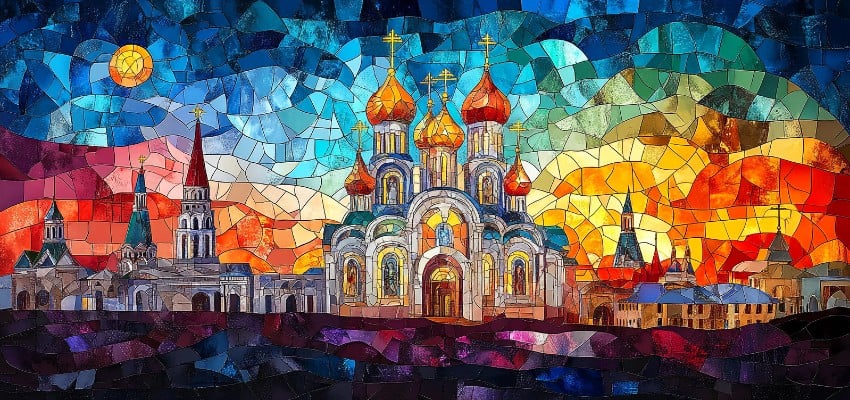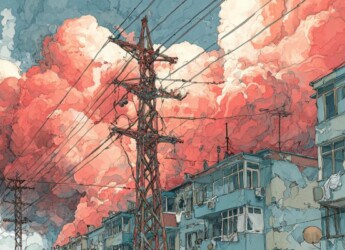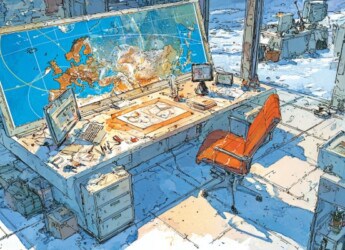Editor’s Note: This article delves into the dual pressures facing Russia as it navigates the challenges of the ongoing war in Ukraine. Highlighting Roskomnadzor’s failed attempt at enforcing new censorship measures and the strategic involvement of North Korean troops, the piece illustrates the Kremlin’s struggle to balance domestic control with military needs. Patriarch Kirill’s warnings about social divisions and military brutality, coupled with technological and recruitment difficulties, paint a comprehensive picture of Russia’s current predicament. As Ukraine fortifies its position with fresh U.S. military aid, both sides brace for an arduous winter campaign that could reshape the conflict.
For those seeking to grasp the full scope of this evolving landscape, the complete updates from the Institute for the Study of War serve as an invaluable resource.
Content Assessment: Roskomnadzor’s Stumble and North Korean Support Signal Challenges for Russia
Information - 92%
Insight - 93%
Relevance - 90%
Objectivity - 94%
Authority - 95%
93%
Excellent
A short percentage-based assessment of the qualitative benefit expressed as a percentage of positive reception of the recent article from ComplexDiscovery OÜ titled, "Roskomnadzor’s Stumble, North Korean Support, and Patriarch Kirill’s Warning Signal Challenges for Russia."
Background Note: ComplexDiscovery’s staff offers distinctive perspectives on the Russo-Ukrainian war and Iran-Israel conflict, informed by military experience on the West German, East German, and Czechoslovakian border during the Cold War and in Sinai as part of Camp David Accord compliance activities. This firsthand regional knowledge has been further enhanced by recent staff travels to Eastern European countries, including Estonia, Latvia, Lithuania, and Poland. These visits have provided up-to-date, on-the-ground insights into the current geopolitical climate in regions directly impacted by the ongoing conflict.
Combined with cybersecurity, information governance, and eDiscovery proficiency, this multifaceted experience enables comprehensive analysis of these conflicts, including the critical impact of cyber warfare, disinformation, and digital forensics on modern military engagements. This unique background positions ComplexDiscovery to provide valuable insights for conflict-related investigations and litigation, where understanding the interplay of technology, data, and geopolitical factors is crucial.
Russo-Ukrainian Conflict Update*
Roskomnadzor’s Stumble, North Korean Support, and Patriarch Kirill’s Warning Signal Challenges for Russia
ComplexDiscovery Staff
Russia’s complex position in the ongoing Russo-Ukrainian War is marked by significant internal challenges and strategic reliance on external support. From failures in domestic information control to enlisting aid from North Korean troops, Russia faces a multifaceted struggle. This comes as Ukraine receives continued Western assistance, setting the stage for a hard-fought winter.
Roskomnadzor’s Censorship Setback
One of the most telling signs of Russia’s internal strain is the failure of Roskomnadzor, the federal censorship body, to implement its plan to deanonymize social media accounts by the November 1 deadline. The policy, announced on October 4, mandated that public accounts with more than 10,000 subscribers register their identity and contact information with the government. Despite this, Roskomnadzor officials confirmed that the policy remains “in development,” indicating bureaucratic setbacks that undermine state efforts to control the flow of information.
Russian milbloggers have openly criticized this lapse, accusing the government of imposing severe, “draconian” laws without proper guidance for compliance. The failure to enforce such measures not only reveals inefficiencies in Russia’s domestic governance but also signals potential vulnerabilities in maintaining public narrative control amid ongoing war fatigue.
North Korean Troop Deployment
Amidst these domestic challenges, Russia is turning to external support to sustain its military operations. North Korea has committed 8,000 troops to the conflict, positioning them in Kursk Oblast for imminent deployment. This move was reinforced by North Korean Foreign Minister Choe Son-hui’s visit to Moscow on November 1, where she expressed firm backing for Russia’s war, calling it a “holy war” akin to existential and civilizational struggles.
While North Korea’s involvement may temporarily alleviate Russia’s manpower shortages, analysts question its long-term efficacy. With daily Russian casualties reported at 1,200 soldiers, the North Korean contingent would cover only a week’s worth of losses. If North Korean troops face similar casualty rates as their Russian counterparts, sustaining this deployment could prove difficult, potentially eroding North Korea’s willingness to commit further resources.
Patriarch Kirill’s Call for Unity
As Russia struggles to project strength externally, internal unity is under strain. Patriarch Kirill, the head of the Russian Orthodox Church, spoke on October 31 about social and ideological divides within Russia. He criticized those who remain disengaged from the war, opting instead for personal comfort and entertainment. Kirill’s pointed comments likely reflect Kremlin concerns over diminishing public enthusiasm, particularly as discussions about additional mobilization gain traction.
Kirill also raised an alarming point about the influence of a “neo-pagan cult” within the military, attributing it to rising brutality among Russian troops. This phenomenon has been noted in reports detailing violent behavior by soldiers, including those linked to the disbanded Wagner Group. The absence of adequate psychological care for returning veterans risks exacerbating social instability, further challenging Russia’s domestic cohesion.
U.S. Military Support for Ukraine
While Russia turns to North Korea for support, Ukraine continues to benefit from Western assistance. The U.S. Department of Defense announced a $425 million military aid package on November 1, aimed at reinforcing Ukraine’s defense capabilities. The package includes Stryker armored personnel carriers, HIMARS ammunition, anti-armor systems, and additional munitions, crucial for maintaining resilience as the conflict extends into winter.
Shifting Battlefronts and Strategic Moves
On the battlefield, Ukrainian forces have made incremental advances north of Sudzha in Kursk Oblast. Russian sources have reported Ukrainian drone strikes targeting infrastructure, including oil depots in Crimea, emphasizing Ukraine’s capacity to project power behind enemy lines. In Kharkiv Oblast, Ukrainian troops secured key positions in Vovchansk, prompting Russian counter-attacks near Lyptsi and Vovchanski Khutory.
In the Luhansk and Donetsk regions, Russian forces continue to press forward. Troops have gained ground northeast of Kupyansk and near Kreminna, with intense fighting reported near Chasiv Yar. The deployment of Chechen Akhmat Spetsnaz units in this sector has been noted, with claims of progress along the T0504 road, a vital route for supply and reinforcement. Both sides are expected to push aggressively to consolidate positions before winter conditions further complicate operations.
Recruitment Challenges and Technological Setbacks
Russia’s domestic efforts to maintain troop levels have included introducing a digital system for veterans to confirm their status and claim benefits, aimed at reducing bureaucratic delays and boosting recruitment. These initiatives are designed to avoid broader mobilization, which remains unpopular and politically risky.
In parallel, Russia’s defense industry faces technological hurdles due to Western sanctions. The search for alternatives to American-made microcircuits has delayed the production of essential military equipment by over a year, impacting Russia’s capacity to adapt and modernize its war efforts effectively.
A Complex Phase Ahead
As Russia navigates these internal and external challenges, the war’s attritional nature continues to strain both its military capabilities and social fabric. The support from North Korea provides a short-term boost but raises questions about sustainability and effectiveness. Meanwhile, Ukraine’s bolstered defenses, supported by Western allies, prepare for winter operations that could define the next phase of the conflict. The Kremlin’s ability to manage public sentiment, maintain recruitment, and overcome logistical constraints will be pivotal as it seeks to maintain its campaign through the winter months.
News Sources
As a leading source for cybersecurity, information governance, and legal discovery insights, including international investigations and litigation, ComplexDiscovery OÜ recognizes the importance of awareness regarding alleged and documented criminal acts, particularly in the context of the Russia-Ukraine conflict. While we, following the lead of the Institute for the Study of War (ISW), do not provide detailed coverage of war crimes in our primary reports, we encourage professionals within the eDiscovery ecosystem to stay informed about these activities. This awareness is crucial for understanding potential future legal actions and responsibilities.
Detailed Reporting with Maps for November 1, 2024, from the ISW – Mouseover to Scroll
Russo-Ukrainian Conflict Update - November 1 - 2024Review the Detailed Reporting and Maps PDF
About the Institute for the Study of War Research Methodology
ISW’s research methodology relies on both primary and secondary sources, enabling researchers to develop a comprehensive understanding of the situation on the ground. In order to analyze military and political developments in any given area, ISW’s research analysts must wholly understand the systems of enemy and friendly forces. They must also understand the population demographics, physical terrain, politics, and history of that area. This lays the analytical foundation for understanding the reasons for particular developments and fulfilling their assigned research objectives. ISW analysts also spend time in places like Iraq, Afghanistan, and elsewhere in order to gain a better understanding of the security and political situation and to evaluate the implementation of current strategies and policies. Our researchers compile data and analyze trends, producing a granular analysis of developments in areas of research, producing an accurate, high-resolution, timely, and thorough picture of the situation. ISW’s research methodology guarantees its success and commitment to improving the nation’s ability to execute military operations, achieve strategic objectives, and respond to emerging problems that may require the use of American military power.
About the Institute for the Study of War
The Institute for the Study of War advances an informed understanding of military affairs through reliable research, trusted analysis, and innovative education. They are committed to improving the nation’s ability to execute military operations and respond to emerging threats in order to achieve U.S. strategic objectives. ISW is a non-partisan, non-profit, public policy research organization.
Learn more, get involved, and contribute today.
Additional Reading
- From Dissent to OSINT? Understanding, Influencing, and Protecting Roles, Reputation, and Revenue
- [Annual Update] International Cyber Law in Practice: Interactive Toolkit
- Data Embassies: Sovereignty, Security, and Continuity for Nation-States
Assisted by GAI and LLM Technologies
* Sourced and shared with direct express permission from the Institute for the Study of War (ISW).
Source: ComplexDiscovery OÜ


























